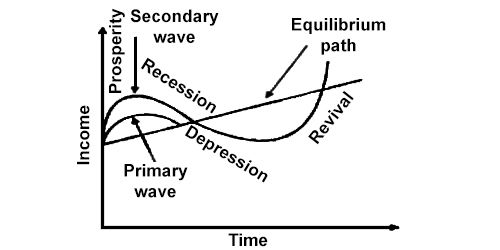Innovation Theory by Schumpeter
Joseph A. Schumpeter developed a theory regarding the economic development of a country in his book “Theory of economic development”. According to him “Economic development” is a discrete dynamic change brought by an entrepreneur by instituting new combinations of production”. He considered trade cycles to be the result of the innovation activity of the entrepreneurs in a competitive economy.
Schumpeter believes that creativity or innovation is the key factor in any entrepreneur’s field of specialization. The main theme of Schumpeter’s theory is,
“The economic development of a country depends upon the various innovative activities of the entrepreneurs. So, an entrepreneur is the central character of economic development”.
He believed development as consisting of a procedure which involved reformation on diverse equipment of productions, outputs, marketing, and industrial organizations.
Schumpeter has developed a model in two stages, i.e. first approximation, and second approximation, in order to further explain his business cycle theory of innovation. The first approximation lays importance on the main impact of innovatory thoughts while the minor approximation deals with the following responses obtained from the submission of the innovations.
Features of Schumpeter Theory –
- High degree of risk and uncertainty,
- Profit is merely a part of the objectives of entrepreneurs,
- Progress under capitalism is much slower than actually, it is,
- It is leadership rather than ownership which matters.
















